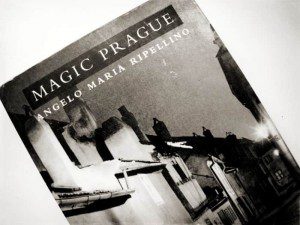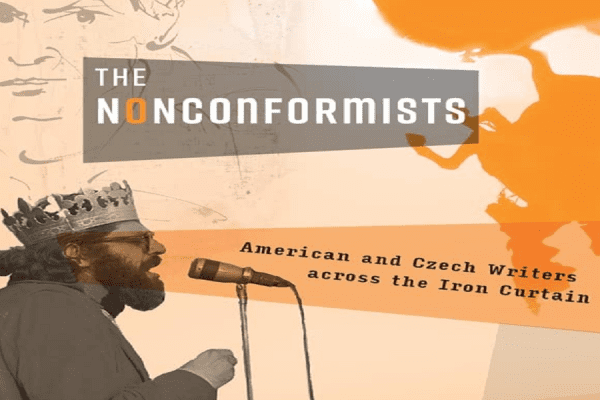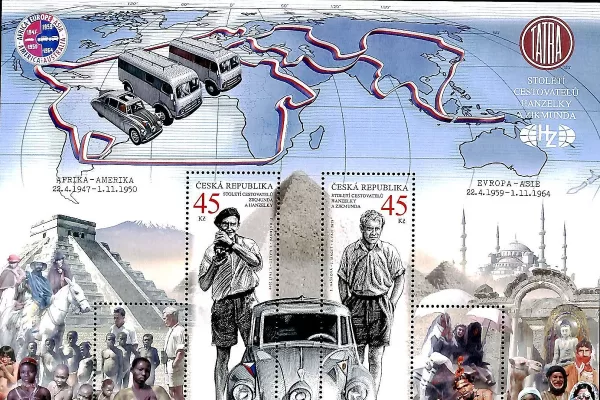In the serendipitous pursuit of literary treasures, there are moments when the most remarkable discoveries unfold before us by sheer happenstance. Such was the captivating journey that began for me with a passing mention nestled within the pages of Nicholas Murray’s Kafka biography—a fleeting reference to a “wonderfully erudite” book by Angelo Maria Ripellino titled “Magic Prague”. Enthralled by the mere whisper of its name, I embarked on a quest to unearth this elusive gem, tracing its path from its origins in Italy in 1973 to its English translation by Macmillan in 1994, now regrettably out of print. Little did I anticipate that my search for a few diverting passages would lead me to the threshold of an extraordinary literary odyssey.
Angelo Maria Ripellino, a polymath of poetic prowess and a luminary in the realms of literature and academia, breathed life into “Magic Prague” with an unparalleled depth of insight and a fervent passion for the enigmatic city.
As a professor of Russian and Czech literature at the University of Rome, Ripellino’s immersion in the cultural tapestry of Prague was profound, and his magnum opus stands as a testament to his unparalleled scholarship and profound understanding of the city’s essence.
In the pages of “Magic Prague”, Ripellino masterfully interweaves threads of history, art, literature, and esotericism, conjuring a tapestry of unparalleled richness and complexity. With each stroke of his pen, he guides us through the labyrinthine corridors of Prague’s collective consciousness, unveiling layers of myth and reality with the precision of a scholar and the eloquence of a poet.
One cannot help but be enraptured by Ripellino’s prose, which oscillates effortlessly between formal exposition and intimate reverie, inviting readers to traverse the sacred and profane realms of Prague’s storied past. From the celestial spires that pierce the heavens to the shadowy alleys of the Jewish quarter, from the alchemical experiments of Emperor Rudolf II to the surreal visions of Kafka and Meyrink, Ripellino’s narrative unfurls like a tapestry of dreams, revealing the city’s myriad secrets and enigmas.
Yet, amidst the grandeur and the grotesque, Ripellino remains steadfast in his focus on the human stories that animate Prague’s streets. Whether recounting the exploits of the Good Soldier Švejk or the revolutionary fervor of the Poetists, he captures the spirit of a city caught between tradition and transformation, between the weight of history and the promise of the future.
But “Magic Prague” is more than a mere chronicle of historical events; it is a lament for a city lost to the ravages of time and the caprices of fate. Ripellino’s longing for the Prague of his memory is palpable, his sorrow at its current state a poignant reminder of the impermanence of human endeavor.
In the end, “Magic Prague” transcends the boundaries of mere literature; it is a journey—a journey through the annals of time and the recesses of the human soul, a journey that beckons us to join the conversation and become part of its ongoing cultural discourse.
“Magic Prague” is a literary gem that transcends time and space, inviting readers on a transcendent journey through the heart of one of Europe’s most captivating cities. Whether planning a visit or simply seeking to unravel the mysteries of Prague from afar, Ripellino’s work is an indispensable companion that enriches the soul and ignites the imagination.
[/ppp_patron_only]
I love this book.
You can get a copy on Amazon. Please note that I may earn a small commission if you purchase through this link.
===
Ripellino’s Magic Prague is a dense and magical foray into the altered state of consciousness that is Prague. Ripellino slips into the style of melodrama and ghost stories as he writes of the time of Rudolf II, the alchemists, the Jewish Quarter, the Golem, the pubs, the funereal malevolence of its architecture, of Holan and Kafka, of Meyrink and the Czech Dadaists.
Anyone who has ever visited Prague, also known as the Golden City of a 100 Ppires must have had an inkling deep in their soul of what the author has magnificently put down in words. Author Ripellino has amassed a tribute to Prague like no other ever before set to paper. The author mystically blends artistic, literary, political, and alchemical history into this manuscript a manuscript you will not be able to put down.
Taking us on a whirlwind journey from one extraordinary Prague tale to another, this book includes legend, myth, and reality all melting into one pot of Bohemian magic.
Now when you visit the Prague Castle, Mala Strana or the Jewish cemetery, you will be able to feel the ghosts of the past come alive.
 The book serves as a beautiful bridge between the mind and the soul and as you wander along the cobblestones of Prague, you will have a deeper knowing and connection to the Praha of old.
The book serves as a beautiful bridge between the mind and the soul and as you wander along the cobblestones of Prague, you will have a deeper knowing and connection to the Praha of old.
Originally published in Italy in 1973, the book is marked by sadness for the events of the Prague Spring: “My friends have been pressing me to finish this pot-pourri, hoping it will rekindle the memory of a betrayed country without hope.”
This is one of those books you really must read.
A reviewer shares: “The late Mr. Ripellino has amassed a tribute to Prague like no other. It breathes. Anyone that has ever visited the “Golden City of a 100 spires” must have had an inkling deep in their soul of what the author has magnificently put down in words. The “Old Crone [Prague] has claws”, as Kafka put it, and Ripellino shows exactly why that is so. The research that went into this book is simply astounding, with my edition having 44 pages of tightly spaced notes, of 333 pages total, including index. The book takes us from one extraordinary Prague tale to another, with myth, legend and reality all melting into one pot of magic. Anyone that plans to visit the center of Europe should read this book in advance, or at least skim it on the plane. It is a tough read, being full of poetic phrases and meticulous details, which often beg for multiple readings. However, the time spent is well worth it. The book will serve as a beautiful bridge between the soul and the mind, as the traveler wanders along the cobblestones of thousand year old “Praha.”
The provided excerpt offers just a glimpse into the extensive article. To unlock the full content, become a Patreon patron. Our team meticulously gathers and curates valuable information, sparing you hours, days, or even months of research elsewhere. Our goal is to streamline your access to the best of our cultural heritage. However, a portion of the content is locked behind a Patreon subscription to help sustain our operations and ensure the continued quality of over 1,200 pages of our work.
Alternatively, you can contribute through Venmo, PayPal, or by sending cash, checks, money orders. Additionally, buying Kytka’s books is another way to show your support.
Your contribution is indispensable in sustaining our efforts and allows us to continue sharing our rich cultural heritage with you. Remember, your subscriptions and donations are vital to our continued existence.



















